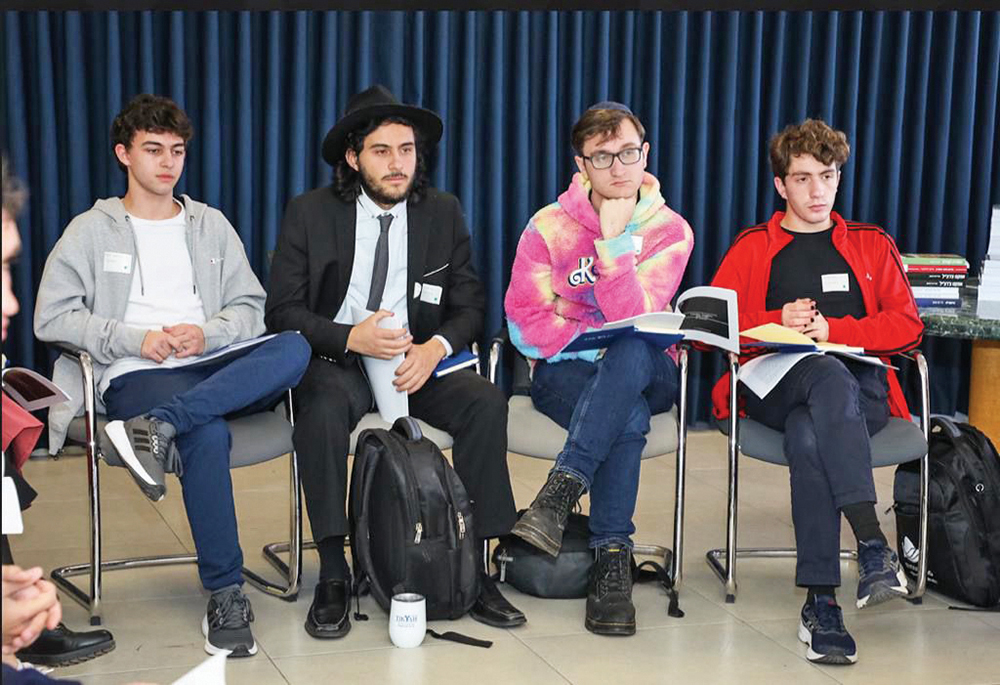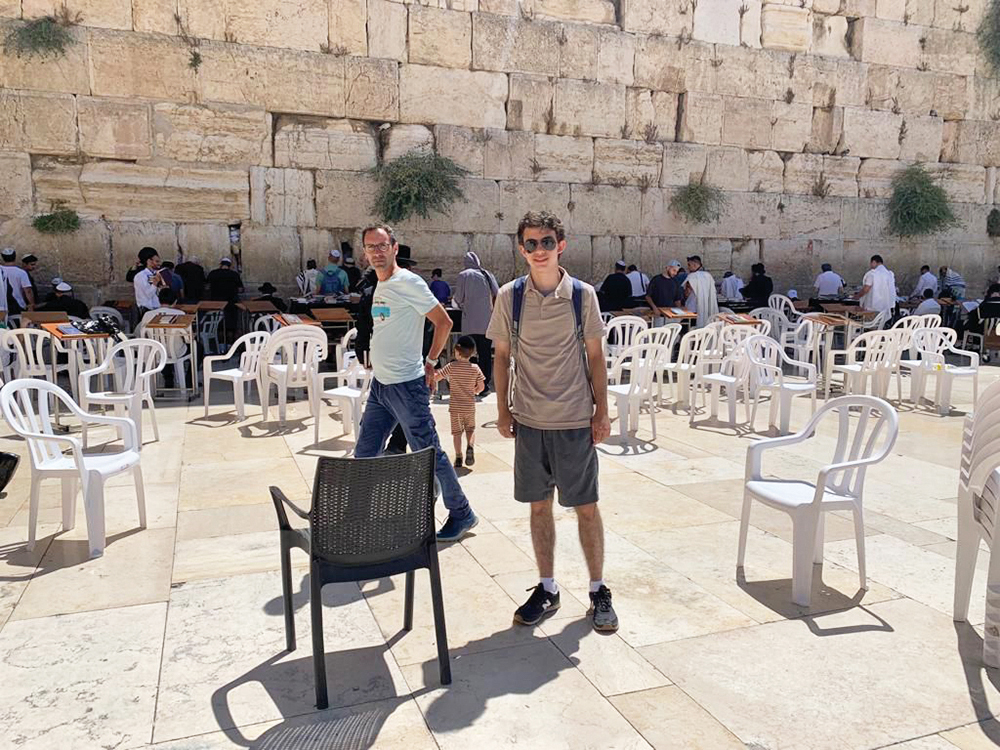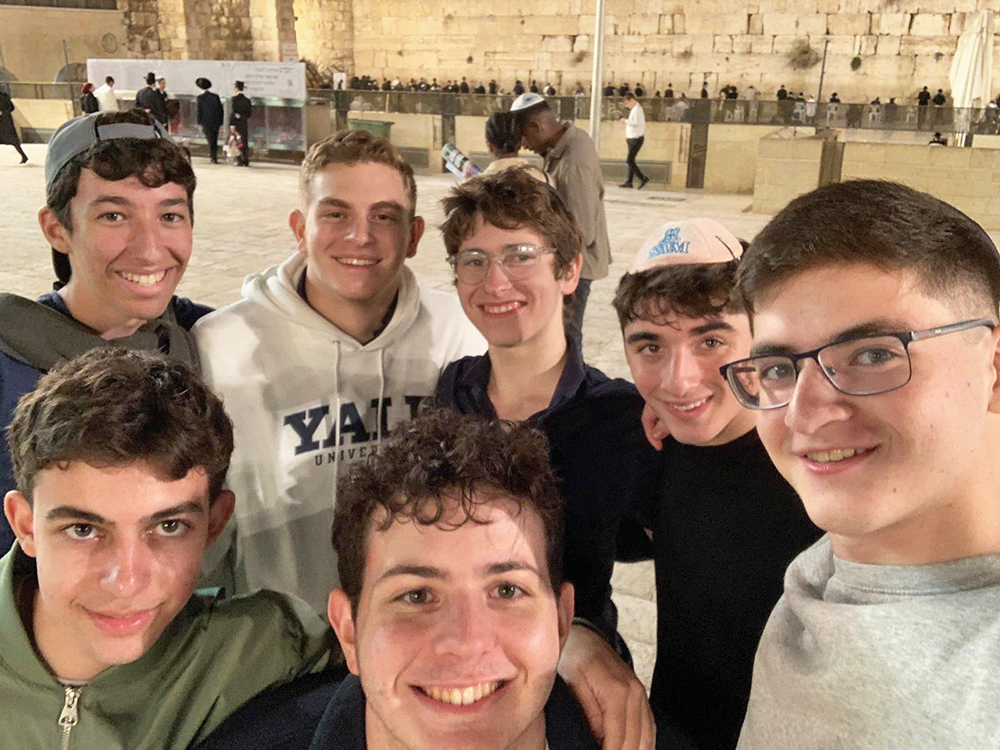
Benjamin Golani hails from Teaneck, where he attends Beth Abraham with his family. Benjamin went to MTA for high school and is in the process of applying to college in the US. He hopes to pursue law and enjoys studying the relationship between Talmudic law and contemporary politics.
Why were you drawn to Migdal, and what makes it different from all the other programs you considered?
While researching yeshivas as a senior at the Yeshiva University High School for Boys, I was immediately drawn to Migdal for its unique emphasis on the study of Jewish and general philosophy, a passion of mine that was scarcely reciprocated during my high school years. My interview with Rabbi Dr. Darrel Ginsberg, the yeshiva’s menahel, left me with an excellent impression of Migdal’s faculty, who are eager to guide students’ intellectual pursuits—Talmudic, philosophical, or otherwise. Migdal’s location in Modiin, a beautiful city conveniently located between Tel Aviv and Jerusalem, is definitely a bonus.
How do you think Migdal HaTorah fits your personality and your own philosophical outlook?
Migdal encourages open inquiry into philosophical ideas within an Orthodox framework. Recently, I was recommended “The Only Wise God,” which, despite being written by a Christian apologist (William Lane Craig) for a primarily Christian audience, offers a valuable reconciliation of God’s foreknowledge and free will that is wholly applicable to Judaism. Furthermore, unlike attendees of many other gap year programs, Migdal students live in apartments, offering them a greater degree of independence.

Is there any particular rebbe that you personally connect with?
My morning-seder Talmud instructor, Rabbi Jonathan Ziring, teaches the most compelling Talmud shiur I’ve been a part of throughout my religious schooling. Not only is Rabbi Ziring incredibly knowledgeable, guiding my peers and me through a shocking number of complementary sources, but he’s constantly available for questions or a casual conversation outside of shiur hours.
What were your expectations going into Migdal HaTorah and how have they differed from your actual experience?
Prior to my gap year, I was concerned about having free time on a day-to-day basis given Migdal’s lengthy daily schedule, which begins with Shacharit at 7:45 a.m.. and ends at 10 p.m.. after night-seder. I was pleasantly surprised to find that Migdal’s various daily and weekly breaks allow for ample time to take advantage of Modi’in’s parks and amenities and to meet with friends from other programs.
Also, living in an apartment a five-minute walk away from the yeshiva has allowed me more independence than I originally anticipated. My apartment-mates and I regularly take advantage of our apartment’s kitchen and other amenities to enhance our lifestyle in Modi’in.

On that point, what’s a goal you had coming into the year?
Prior to my gap year, I planned to progress in my study of the Talmud, Jewish philosophy and general philosophy with texts like tractate Zevahim, “The Kuzari” by R. Judah HaLevi and “Five Proofs of the Existence of God” by Edward Feser, respectively.
Aside from my varied religious and academic projects, I intended to use my gap year as an opportunity to spend time with my Israeli family and engage with Israeli culture more broadly. I’m pleased to say that I’ve done both, and now speak broken English with a jarring Israeli accent.
What is your favorite class in Migdal HaTorah?
Professor Matt Lipman’s Twenty-First Century Zionism: a weekly seminar that offers a fascinating look into the founding, history and challenges faced by the modern state of Israel. I think this class is relevant more than ever given the ongoing war, and discussing current events with Prof. Lipman and other students is helpful in clarifying my views.
Outside of learning, what else do you enjoy doing in Israel?
Running half-marathons in downtown Modi’in, participating monthly in the Tikvah Overseas Student Institute, mindlessly circuiting the Jerusalem shuk, and striking up conversations with taxi drivers when I miss my bus back from Jerusalem.
What does a typical Shabbat look like for you?
When there isn’t an in-Shabbat or yeshiva-wide Shabbaton, I tend to visit family in a kibbutz in central Israel or along the Lebanese border up North. Seeing the contrast between the former, secular community and latter, ultra-Orthodox community lends itself to a nuanced understanding of contemporary Israeli society that has certainly enriched my year.

What has been the highlight of your year so far?
I really enjoyed the yeshiva-wide shabbaton in Ma’ale Adumim, Jerusalem. Most memorable was the afternoon spent recognizing the hostages and soldiers involved in the ongoing war effort through conversation and song.
How do you think this year will prepare you for the rest of your life?
I’ve developed profound lifelong skills, like avoiding Israeli pizzerias and grocery shopping on a budget. On another note, the analytical skills I’ve developed through studying at Migdal this year will undoubtedly have a positive impact on my future academic and vocational plans. I’ve also made some great personal connections that I intend to maintain.
Sam Savetsky, of Bergenfield, is a Shana Bet student currently studying at Yeshivat Migdal HaTorah in Modiin.









